Iain Dale, broadcasterpublished at 09:22 GMT 12 March 2015
tweets, external: Twenty minutes in to #CallClegg and still no mention of the elephant in the room #donationssting
Lucy Powell, Ed Miliband's chief election strategist, says on Question Time there is "absolutely no prospect of a Labour/SNP coalition"
Nigel Farage says UKIP would scrap much of the legislation designed to prevent racial discrimination in work
No 10 says his remarks are "deeply concerning" while Labour brands them "shocking" - but Mr Farage says he was misrepresented
A former head of fundraising for the Lib Dems steps down as a party candidate over donation claims
There are 56 days until the general election
Gerry Holt and Brian Wheeler
tweets, external: Twenty minutes in to #CallClegg and still no mention of the elephant in the room #donationssting
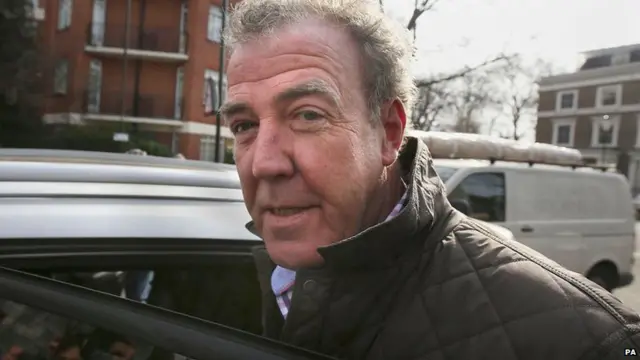 Image source, PA
Image source, PASpeaking on his radio phone-in on LBC, Nick Clegg says Jeremy Clarkson is "incredibly popular" and Top Gear provides entertainment to millions of people. The deputy prime minister says his employers are responsible for deciding whether he stays on at the BBC. "Quite simply, it's for his boss to decide, full stop", Mr Clegg concludes.
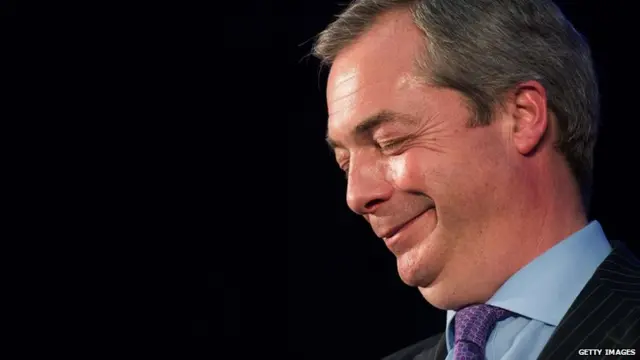 Image source, Getty Images
Image source, Getty ImagesHere's a bit more from the Channel 4 preview of their interview with Nigel Farage. The transcript provided by documentary makers reads:
Asked by writer and presenter Trevor Phillips whether he believes that there is too much race discrimination legislation Mr Farage responds:
"Yes"
Asked which legislation he would get rid of, Mr Farage responds:
"Much of it. I think the employer should be much freer to make decisions on who he or she employs. I think the situation that we now have, where an employer is not allowed to choose between a British-born person and somebody from Poland, is a ludicrous state of affairs. I think that we have taken our relationship with Europe to a level that, frankly, has gone against common sense, and certainly against self-interest."
"I would argue that the law does need changing, and that if an employer wishes to choose, or you can use the word 'discriminate' if you want to, but wishes to choose to employ a British-born person, they should be allowed to do so. … I think you should be able to choose on the basis of nationality, yes. I do."
Asked whether there would be a law against discrimination on the grounds of race or colour, Mr Farage responds:
"No…. because we take the view, we are colour-blind. We as a party are colour-blind."
 BBC Radio 4 Today
BBC Radio 4 Today
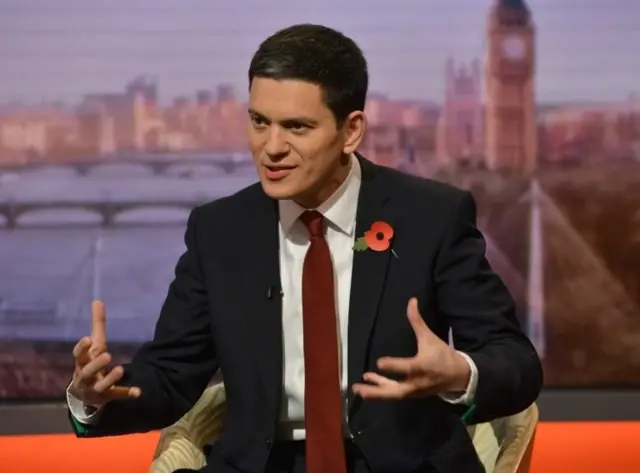
David Milband is on the Today programme to talk about the crisis in Syria. He says the failure of the UN in Syria "is a real one". "The statistics are shocking… but even more shocking is there is no effective political process to bring the Syrian conflict to an end," he says.
"There are three things that are very straight forward to do and one thing that is very difficult to do," he adds.
Each member of the UN security council should appoint a humanitarian envoy, he suggests, partly for the practical reason that it is impossible for the foreign secretary to deal with Syria and everything else that comes across his desk every day
There also needs to be much more help provided to Syria's neighbours
The West needs to take more refugees
The difficult thing is for the West and Middle Eastern countries to bring about a political conclusion to the conflict, he says.
"Diplomacy works when it is combined with real pressure", Mr Miliband says. "It is obvious that the Russian veto has diminished the UN Security Council and its effectiveness".
There are also questions to be asked about Russia's role in the world he says - there has to be a realisation "that ISIS is the enemy of all".
tweets, external: If it talks like a racist, develops policy like a racist and wants to discriminate like a racist, chances are it is a racist party @UKIP
tweets, external: In the #Newsnight chair tonight, what are you interested in?
 BBC Radio 4 Today
BBC Radio 4 Today
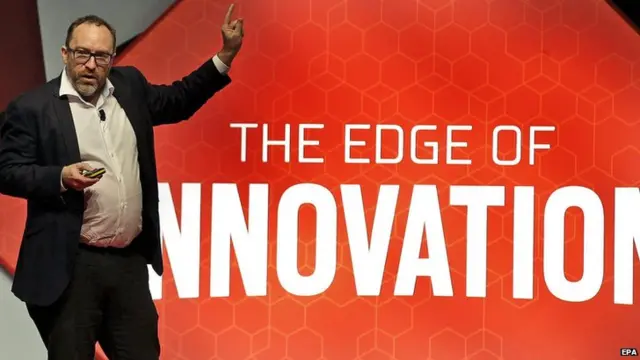 Image source, EPA
Image source, EPAHere's a bit more from the discussion about security surveillance powers on Today earlier.
Wikipeida founder Jimmy Wales, pictured above, told the programme: "This bulk collection will be useless in a few years' time because electronic communications such as those on Whatsapp is encrypted." He says Russian and Chinese governments "are no role models for the rest of us" and people in those countries will find a way around bans on applications like Whatsapp anyway.
Mr Inkster pointed out the main issue was one of "purpose and process". What matters is what arrangements there are to guard against abuse, eh said, adding there are big questions to be answered. Do we want to live in a world in which no communications can be controlled? He says the move toward hard encryption by technology companies is driven by their need for market share.
"I understand why people are alarmed by the Snowden revelations", Mr Inkster says. "I think the main revelation is the extent to which people's personal data has been commoditised and sold around the world."
The power of the security services to analyse that data has proven to be pretty limited, he adds.
tweets, external: Just 42 written ministerial statements today. Part end of Parliament clean up but wondering how many are "clear out the trash"
tweets, external: Farage on @BBCr4today opposes race equality law; he wld actually make it legal to discriminate on colour of skin. Appalling, even for him!
 BBC News Channel
BBC News Channel
Nigel Farage believes most of the UK's race and equality legislation is out of date and should be abolished, says the BBC's assistant political editor Norman Smith. He thinks British businesses should be able to employ British workers instead of people from other countries.
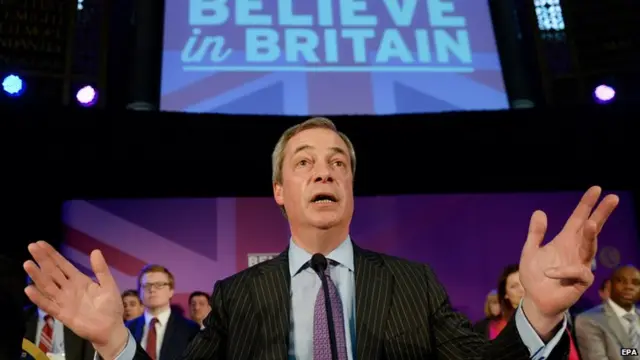 Image source, EPA
Image source, EPAA bit more from Nigel Farage on his comments to a Channel 4 documentary. He told Today: "I did not mention race at all. There was no part of that interview with Trevor Phillips at all.
"What I said was that I do believe there should be presumption for British employers in favour of them employing British people as opposed to somebody from Poland.
The UKIP leaer added: "Gordon Brown, when he was prime minister, talked about British jobs for British workers. We'll I'm saying it and really meaning it."
He said the UK should celebrate how "equitable and fair" has become since the introduction of race discrimination laws.
 BBC Radio 4 Today
BBC Radio 4 Today
Jimmy Wales founder of Wikipedia tells Today: "I think the bulk collection of data is very dangerous it's the sort of thing the [East German secret police] Stasi would have salivated over. The risk to people of political assassinations [perhaps on in the UK] still exists", he says.
 BBC Radio 4 Today
BBC Radio 4 Today
Nigel Farage says the UK is not a racist country - we have moved "way, way, way beyond that", he adds.
 BBC Radio 4 Today
BBC Radio 4 Today
Nigel Farage says his comments have been "wilfully misinterpreted". He says he is in favour of British people getting jobs over those from south and eastern Europe.
 BBC Radio 4 Today
BBC Radio 4 Today
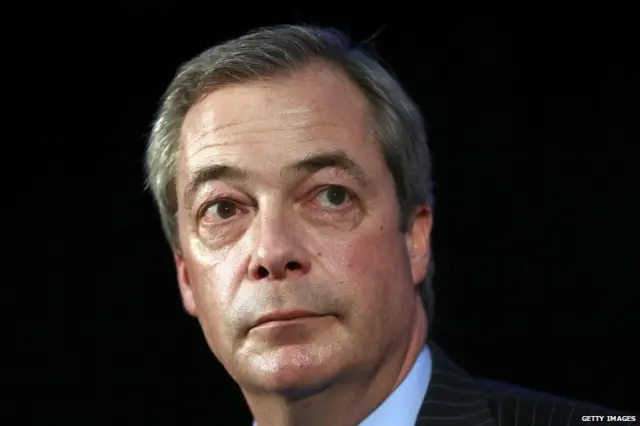 Image source, Getty Images
Image source, Getty ImagesMr Farage says he had forgotten the Channel 4 interview - it was last year. He says Downing Street can try and paint the comments as being about race, but he is speaking up for the unemployed youth of Britain - black and white.
 BBC Radio 4 Today
BBC Radio 4 Today
Nigel Farage tells Today he did not mention race at all during his Channel 4 interview. He says he wants British jobs for British workers.
 BBC Radio 4 Today
BBC Radio 4 Today
"What we are talking about here is the bulk collection of civilian communications in order for the security services to identify very narrow and specific threats", Mr Inkster says. He adds certain countries either have, or are looking at, banning certain encrypted communications platforms. Russia and China for example insist on begin able to snoop on their citizens, he says.
 BBC Radio 4 Today
BBC Radio 4 Today
Nigel Inkster, from the International Institute for Strategic Studies, is speaking about UK security agencies and their access to private communications. The former assistant chief and director of operations at MI6 tells Today he believes the intelligence and security agencies already have "pretty adequate powers" of surveillance. But he adds that what they will need in future will be determined by "technological developments".
 Norman Smith
Norman Smith
BBC Assistant Political Editor
Downing Street have described Nigel Farage's call to scrap equalities legislation as "deeply concerning." Number 10 said: "Nigel Farage is wrong and desperate for attention. The laws are there to protect people from racial discrimination."
tweets, external: No 10 say Nigel Farage's call to scrap equalities legislation is "deeply concerning"